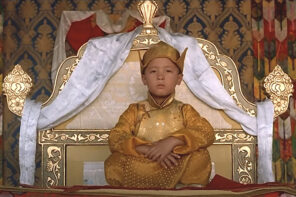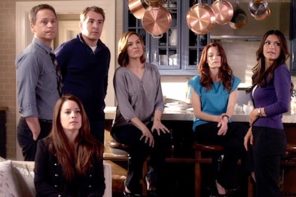Maureen Dowd tells us, at the end of her most recent column [“Pilgrim Non Grata in Mecca”], that she was “surprised” to learn that Abraham, father of the Jews, built the Ka’ba, Islam’s holiest shrine. (He was father of the Arabs, too, but heaven forbid she makes that connection.) Too busy lamenting her lack of access to mosques, especially the sacred mosques of Mecca and Medina, Dowd never learns what these mosques actually signify. This fun fact dawned on her after her trip, while watching an IMAX movie; shouldn’t she have at least picked up a book on Islam before demanding the religion conform to her sensibilities? If power is blind, entitlement is deaf.
Dowd is frustrated by her trip to Saudi Arabia—but it’s not clear why she expects that because Saudi Arabia is “the cradle of Islam,” that it would provide the best introduction to Islam. The bias towards origins is a bias that has gone on for far too long. One can experience Islam in many places, and those different practices of Islam—most of them not even Arab—are as fully Islam as any other. (She could have emailed me and I would’ve given her a profound, accessible, witty and unexpectedly entertaining primer.) Hence Dowd’s absurd point that though non-Muslims cannot visit Mecca or Medina, non-Catholics can visit the Vatican—and non-Buddhists can hear the Dalai Lama speak. Even get a picture with him. (I’m not making this up.)
Neither Mecca nor Medina are the Vatican. They are Mecca and Medina. Nor does Islam have a Dalai Lama; there is no one single voice who speaks authoritatively to all Muslims. As a legal religion with a spiritual and ethical project, Islam’s authority is embedded in practices, rituals, texts, scholars and Sufis, all tying themselves back to the Prophet Muhammad. (That is why neither Mecca nor Medina approximate the Vatican, or the Dalai Lama: Neither hosts nor represents a central Islamic authority.)
But there’s more than just a poor series of contrasts, betraying an inability to grasp the fundamental structure of a faith and culture. And that is the idea that because one religion does something one way, other religions should be judged by the same measure; this gumption hints at the kind of flatness which can—as we see in some places in the world, where social movements take secular (or religious) culture and use it as a bludgeon—become an instrument of enforced homogeneity. Where’s Thomas Friedman when you need to avoid him?
I’m not saying all is perfect in the houses of Islam. Nor do I claim that the experience non-Muslims receive in visiting mosques, or attempting to learn about Islam, is at all ideal. (Let alone how quickly many Muslims are judged by other Muslims, inside or outside of mosques.) But what a strange thing it is to wonder why one cannot force a religion’s most sacred site to bend to one’s fleeting impulses. Because of her voyeuristic desires, centuries of Muslim practice and belief must go. One can almost hear her stamping her feet: Change for me. Because, after all, I’m an important person. But I do not visit a synagogue and expect that I, a lone person facing thousands of years of Jewish faith and practice, have any right to demand Judaism re-orient itself to serve my expectations of what a religion should be.
9/11 didn’t happen because religions have closed spaces. Every religion has closed spaces; every society has exclusive boundaries, off limits to non-believers (they’re called passports.) But since when did it become substantive enough to wonder why religious sites aren’t also tourist opportunities? If that’s what dialogue is going to be reduced to, we have a much longer road to take, and I fear the distance makes the task overwhelming. While differences can be the source of divisions, differences are also what give us the potential to be free: If everyone were the same, there would be no reason to have democracy. If everyone believed the same, there would be no necessity for tolerance.




